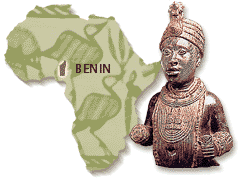 |
BENIN |
 |
|
|
The stability of the regime was first threatened during late 1990 with a series of student-led demonstrations whose intensity steadily increased over the following months. These seemed likely to provoke a drastic reaction from the Government. However, with French encouragement, the Kérékou government agreed to hold a presidential election. His principal opponent at the March 1991 poll, and the ultimate victor, was Prime Minister Nicéphore Soglo. Benin was thus the first country in the '90s to effect successfully the transition from dictatorship to a pluralistic political system an example that many other African governments are trying to emulate. Minor internal challenges have arisen occasionally in the form of student unrest, industrial action and disaffection among sections of the army, but none of these has seriously threatened the Government. Abroad, the Soglo administration has sought to strengthen ties with France, the former colonial power, and has adopted a mediating role in the political crises in Liberia and Togo. Benin has also offered a contribution to the UN force in Haiti, an indication of the countryšs growing confidence in the international community. Soglo was favourite to win the next scheduled presidential election in March 1996, but surprisingly was defeated by the former military leader Mathieu Kérékou, by the narrow margin of 52% to 48%. |
![]()
| OK Raids -
okraids@okraids.bf Tél : (226) 50.38.88.63 / 96 Fax : (226) 50.38.55.46 |
 |